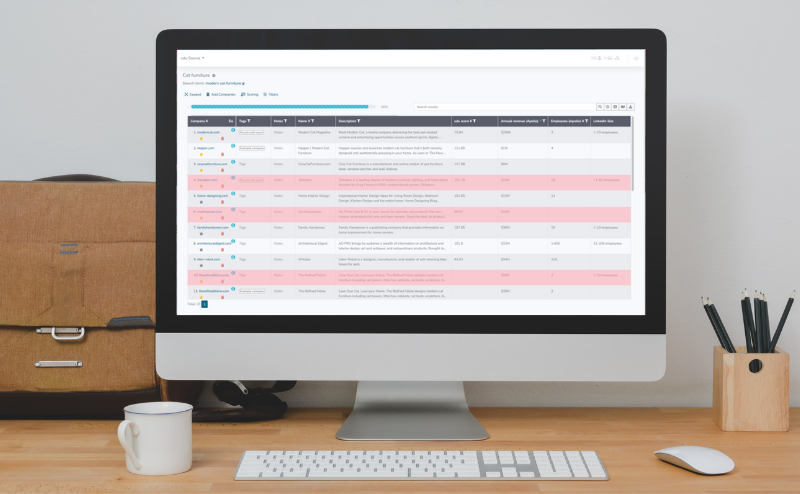The Importance of Data Science in Private Equity
Today, there’s inarguably an abundance of available data. And when leveraged effectively, data science and private equity analytics software can identify where and how private equity (PE) firms should focus their resources.
As far back as modern man can fathom, data has helped society advance. Early humans used tallies and tick marks to track and record inventories like food and other vital resources, etching notches on sticks and walls for the survival and prosperity of current and future civilizations. Data has played a key role in human advancement for tens of thousands of years, and its use has advanced as society evolved.
So, how are modern organizations like private equity firms using data science to succeed?
Data Science and Analytics Are a Must-have in Private Equity
Even the most experienced PE firms can’t stay competitive if they don’t build a rigorous approach to data and analytics into their due diligence process. Private equity data analytics combines statistics, econometrics, data engineering, and computer science to collect and analyze significant amounts of information about potential opportunities.
In the context of a PE firm, proper private equity data management gives you the ability not only to access data but to interpret the endless stream of information. Interpreting that data into actionable insights is key to a firm’s success and credibility. In addition, building a data-driven culture gives PE firms a holistic view of their organization that extends well beyond checks and balances.
But, if your PE firm still uses Excel spreadsheets to guide decision-making about which companies to acquire and what investing strategies to pursue, it’s time to upgrade.
Using Private Equity Analytics Software to Make Better, More Informed Decisions
Firms are often guilty of aggregating data they can’t manage or analyze properly, so they make investment decisions based on balance sheets and profit and loss statements, with Excel as their go-to tracking tool. But the sheer volume and complexity of available data mean PE firms must move towards more modern forms of data science in private equity analysis to stay competitive.
Implementing private equity analytics software has several benefits. It can help:
- Save your firm time
- Easily aggregate complex data
- Identify possibilities for growth potential
When paired with reliable company data, these robust data science and analytics tools help answer crucial questions like “What share of the industry does company XYZ have?” and “How is it benchmarking to competitors in the same industry?”
Intelligent Automation and Analytics in Private Equity Allows for Greater Visibility
By using data and analytics in the pre-deal and due diligence phases, PE firms can confirm or challenge a company’s assertions, refine key valuation model inputs, and identify ripe opportunities as well as risks. Yet, only one-third of the investment industry uses advanced technology like AI and machine learning to vet private companies quickly.
According to a 2018 KPMG survey, 70% to 90% of the surveyed PE firms are still in the awareness phase with respect to eight key digital innovations. That means if a PE firm can adopt and master data science technology, it can stand out in an ocean of competitors.
Here’s how using analytics in private equity can give your PE firm a boost:
1. Simplify and streamline the valuation process.
Data and analytics help identify, evaluate, and quantify how a PE firm determines the value and longevity of new investments. The ability to accurately collect data and analyze the costs and risks associated with the investment leads to quicker, more informed decisions.
2. Uncover early stage, overlooked, and out-of-market opportunities.
Working in private equity means being under pressure to find the best opportunities. Data science and AI often reveal the less obvious, early-stage opportunities that humans miss. This leads to a pipeline of identified opportunities to monitor, track and ensure you reach out at the right time. You may be able to look at a market and see the deals that interest you today, but AI can help predict which deals you will be interested in next year and beyond.
3. Identify new avenues for growth.
The right analytics solution and platform will free up a lot of time for your team by automating time-consuming tasks. This free time can be used to uncover new revenue sources, improve sales, monitor finances, and allow for more targeted marketing. Firms will now have the ability to branch into new markets they didn’t have the time or experience to work within previously. In addition, this modern approach helps crystallize and prioritize growth opportunities so the company and the PE firm succeed in their new endeavors.
4. Pinpoint performance drivers.
Real-time analytics solutions automate manual consolidation and analysis of data. These reports can also be used to measure portfolio performance, create KPIs, and unlock new sources of value and revenue.
5. Create informed exit strategies.
Effective private equity data management can help simplify the valuation process while maximizing the sale potential. By analyzing dry powder available in the market and which firms have completed deals in a specific industry, firms can make an accurate short list of potential buyers and predictions about valuation and timeframes for a sale. This can be done even before an acquisition is completed.
Private Equity Analytics Software Gives Firms a Strategic Advantage
Although some PE firms have adopted data management software systems, many continue to rely on archaic tools, like Excel, databases, and PDF reports, instead of robust, AI-driven private equity analytics software. Suppose PE firms fail to leverage data analytics in the most optimal way to measure and manage value creation. In that case, they risk becoming obsolete or, at the very least, losing their competitive advantage.
If firms modernize and build these capabilities by implementing a robust private equity data management software solution, they can perform and invest at an entirely new level. And that means they can be more accurate and aggressive in valuations when buying companies while also increasing their exit valuation potential.
To compete in today’s market, PE firms need high-quality technology solutions that sharpen their insights and streamline workflows across the full-fund lifecycle. Schedule a demo to learn why udu is the best private equity analytics software and how AI-driven business development can help you.


